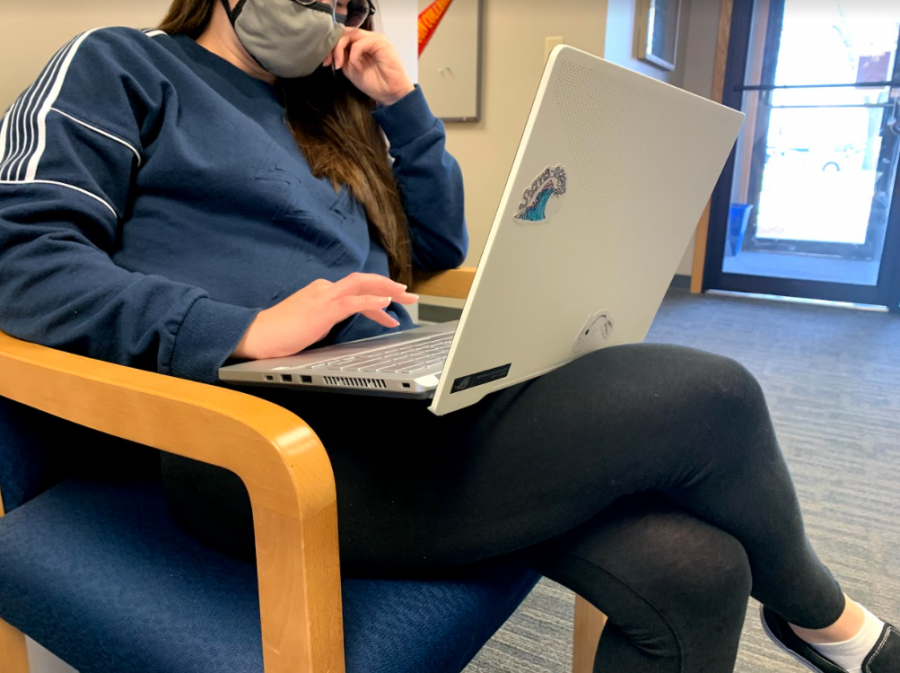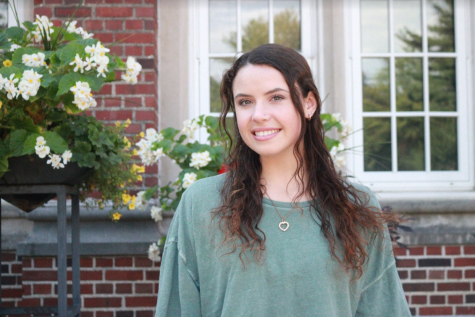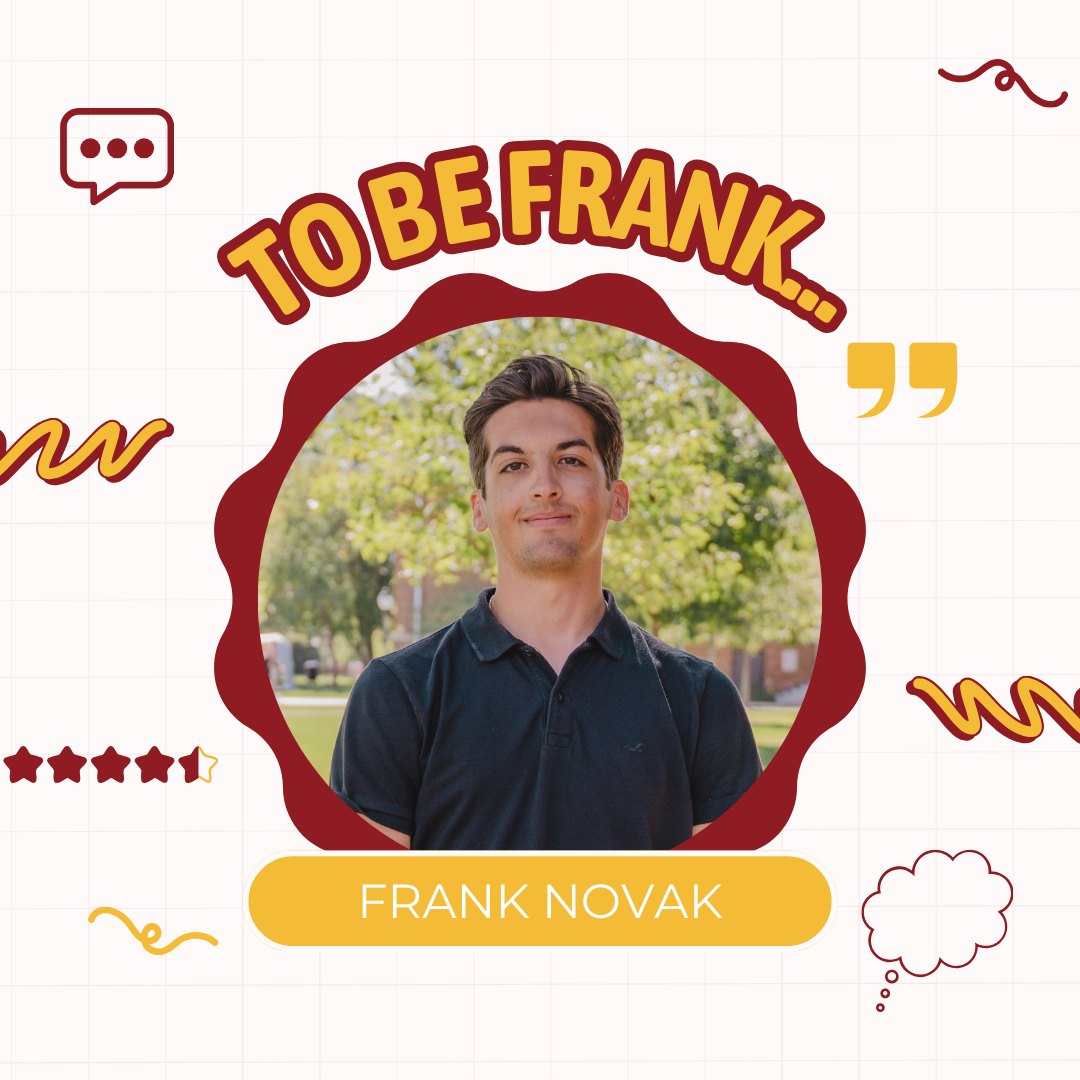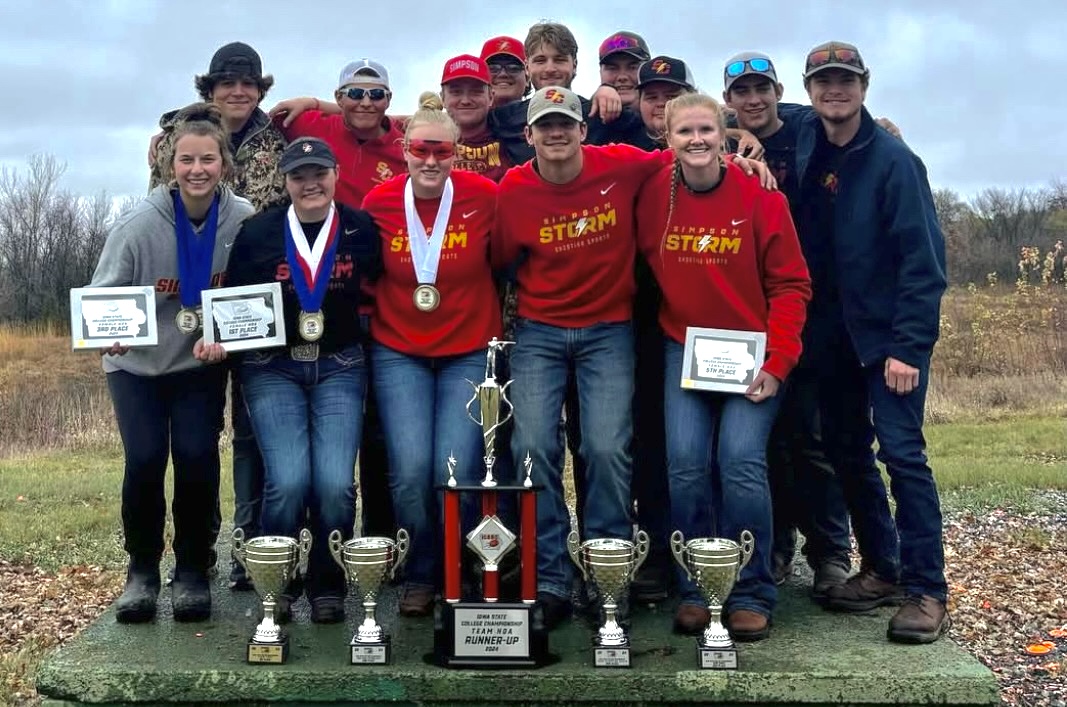Burnout: A look at the 2020-2021 school year
April 21, 2021
A global pandemic. Virtual learning. Quarantine and self-isolation. Weekly COVID-19 testing. Social distancing. All of these factors combined with hefty college course loads, extracurricular activities, internships and jobs can be summarized by one word: Burnout.
According to experts at Psychology Today, ‘burnout’ is defined as a “state of emotional, mental, and often physical exhaustion brought on by prolonged or repeated stress.”
It is important to note that burnout is not just a result of heavy workloads, long hours, or physical exhaustion–it’s a combination of many different/prolonged stressful and exhausting things. Burnout is different and more severe than stress, and unfortunately, it’s harder to recognize. Many students continue pushing forward in this state, even though they’re facing extreme mental exhaustion.
With the looming presence of COVID-19 and fewer breaks than usual this year–namely the loss of Spring Break–it’s no surprise that the vast majority of students at Simpson College are burnt out. Senior Taylor Williams, one of the many heavily involved students on campus, has experienced many symptoms of burnout throughout this tumultuous year.
“Mainly fatigue and stress eating. I used to be really bad in high school and get Mono from being so stressed, but I’ve learned I truly have to stop myself before it gets to that point,” Williams said. “I had to start looking at my involvement differently. I can do anything, and it’s a good skill to have great task management, but I have to start thinking about my body a little differently.”
Williams has needed to find a new perspective on her involvement and time management in a way that honors her mental health and body.
“I look at it like I’m my phone’s battery. If I’m jumping from app to app constantly all day without charging my phone, my phone dies faster and my apps start glitching the closer I get to 1 percent. The more tasks and activities I do without taking the proper time to rest and recharge, the worse my performance is,” Williams said.
This year’s altered schedule has made it harder for students like Williams and senior Melanie Gillet to “recharge their batteries.”
“[…] with COVID and everything like that and having no breaks, it’s just kind of added additional stressors, and it made my timelines a lot shorter,” Gillet said. “I’ve just become really overwhelmed with all of the quick due dates, quick assignments and the overloading of homework and assignments on me.”
Gillet feels her senior year has faced the brunt of this atypical year.
“I remember all of the [previous] seniors were given a lot of rewards for being seniors, a lot of special events that they could participate in, and we haven’t done that for two years because of COVID,” Gillet said. “My senior year has consisted of probably the bare minimum that I’ve experienced in the last four years, and I think it’s mainly the administration’s fault for not planning very well, and for kind of cheapening out on giving seniors the ability to really exhaust those resources or to be very relaxed and confident with wherever they are.”
Junior Foxx Harrington feels spring break is critical for students hoping to rest and relax from their academics.
“The lack of Spring Break was really tough,” Harrington said. “There weren’t very many rest days, so this semester has felt way more stretched out than normal.”
On top of causing a major public health crisis, COVID-19 has also altered the way students are used to learning, presenting newer, unique stressors for college students and their hefty courseloads.
“This year has been challenging with COVID being a factor,” junior Steven Cruz-Castro said. “A lot of classes have been moved online and a lot of students don’t know how to transition from in-person to online. For me, it was really complicated; especially the aspect of communicating with my teachers, which is harder now. There are a lot of complications with communication, especially this year with internet issues, which is always a big problem at Simpson. That wall of communication makes things much more stressful now.”
Aside from a change in classroom settings, college students’ social lives have been negatively impacted and restricted in lieu of CDC guidelines and public safety recommendations.
“One thing that really fills my tank, personally, is being able to socialize and be around my peers,” junior Maraya Haynes said. “Burnout has come pretty quick for me, especially this semester. After not seeing my friends for so long it’s definitely come swiftly and quickly and it’s taken a huge toll on my mental health.”
Licensed mental health counselor Alex Rohn advises students to take measures to prevent and alleviate burnout during times of stress and uncertainty.
“Students on campus can combat burnout by tuning in, listening to what their bodies need and honoring how they feel. Asking yourself questions such as, How am I feeling in this moment? When’s the last time I drank water?” Rohn said. “Taking care of your physical and emotional needs decreases further burnout. Academically, it’s important to write down all your tasks with due dates and prioritize those tasks. Break up your time studying and give yourself permission to do what you can in a day while fully recognizing it is not going to all get done in one day.”
To Rohn and other mental health experts, balance is key to decreasing burnout.
“Find a balance between time spent on doing things you do to be human and time spent on doing things you do to be a student. Heads up: you are more than just a student! This could be asking yourself those questions above, but also leaning on your support system, asking for help, seeking out resources such as CARS or SCCS, saying no and or taking time out of your day for self-care. Self-care isn’t selfish, it’s necessary,” Rohn said.
For junior Lexie Parks from Allen, Texas, self-care included a trip home this semester.
“I went home for a weekend, it takes ten hours to go home but sometimes you just need a break from being at school. I drove home and just got to ‘reset’ and be with my family and take time to relax,” Parks said. “Volleyball also tends to help because I can channel a lot of my energy towards that versus just towards school.”
If you’re feeling burnt-out or need someone to talk to about any mental health concerns, you can schedule an appointment with counseling services at [email protected].







